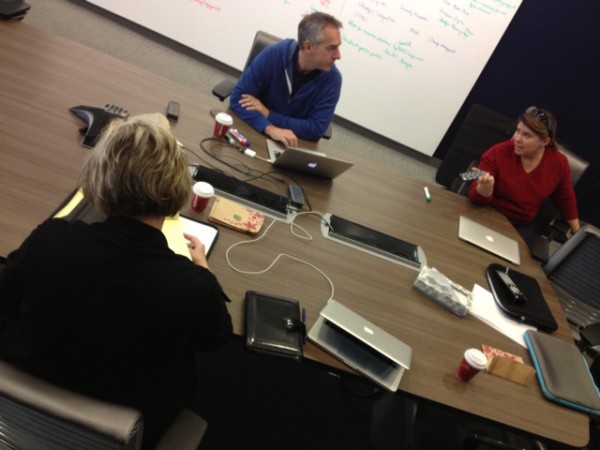09 Apr Are Your Meetings Effective?
According to the National Statistics Council, 11 million meetings are held each day. Often, meetings are used as a communication tool when another form of communicating would suffice just as well, if not better. Do you know someone who likes to call a meeting just for the sake of meeting or getting a group of people together? Have you ever attended a meeting where the main goal seemed to be to exchange office gossip and drink coffee? If you’re nodding your head in agreement, read on for some helpful tips on how to make meetings more effective!
A meeting is effective when:
It is required. Meetings must be necessary in order for them to be effective. Is a meeting the best communication tool for the information that will be exchanged? Consider whether another form of communication, such as an email or a conference call, might suffice instead.

Make sure the right people attend the meeting.
The right people are present. It is critical to make sure that the right people are in the meeting. This may seem like an obvious statement, but have you ever been in a meeting where a key decision needed to be made and someone with important information wasn’t present? Make sure that you gather the people who are critical to making decisions on the topic at hand. Also, think ahead to who will need to be responsible for actions that result from the meeting. You’ll want to make sure that those people are included as well.
It has a clear objective. What is the objective of the meeting? Do you have a clear idea of what you expect to be achieved in the time that has been set aside? Having a clear focus allows you to stay on topic and on track, maximizing everyone’s time. Also, the people in the meeting will appreciate being able to direct their focus toward a well communicated goal.
The right amount of time is scheduled for that objective. Timing, timing, timing. Ensure that the meeting starts and ends on time, and that it takes no more time than is necessary to achieve the objective. Often, meetings are scheduled around specific periods of time, the most common of which is an hour. Will it take a full hour to achieve your objective or will a shorter meeting work just as well?
It results in clear actions. Action! Clear follow up actions should be agreed upon before the meeting is concluded.
Making meetings more productive requires some effort, but with a little bit of work, they can be better attended and more effective in moving forward the goals of the organization. Our next blog post will look at how to prepare for a meeting.
Related Articles
Ready to fearlessly provide feedback and get positive results?
Our Fearless Leaders MasterClass® Program will help you develop the emotional intelligence and leadership skills needed to have effective conversations.
Sign up to reduce manager overwhelm and employee turnover.




